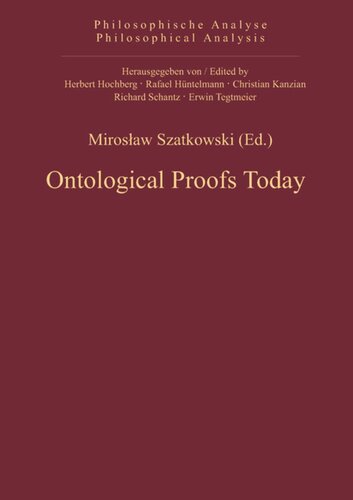

Most ebook files are in PDF format, so you can easily read them using various software such as Foxit Reader or directly on the Google Chrome browser.
Some ebook files are released by publishers in other formats such as .awz, .mobi, .epub, .fb2, etc. You may need to install specific software to read these formats on mobile/PC, such as Calibre.
Please read the tutorial at this link: https://ebookbell.com/faq
We offer FREE conversion to the popular formats you request; however, this may take some time. Therefore, right after payment, please email us, and we will try to provide the service as quickly as possible.
For some exceptional file formats or broken links (if any), please refrain from opening any disputes. Instead, email us first, and we will try to assist within a maximum of 6 hours.
EbookBell Team

0.0
0 reviewsThe book Ontological Proofs Today, apart from the introduction, consists of six parts. Part II comprises papers each of which pertains either to historical ontological arguments, or to some other, rather new, ontological arguments, but what makes them stand out from the other papers in this volume, is the fact that they all treat of the omniscience or the omnipotence of God. Part III includes papers which introduce new ontological arguments for the existence of God, without referring to omniscience and omnipotence as the transparent attributes of God. The issue of the type of necessity with which ontological proofs work or may work is raised in the articles of Part IV. In Part V the semantics for some ontological proofs are defined. Part VI consists of papers which, although quite different from each other in terms of content, all explore some ontological issues, and formal ontology may be considered the link between them. Part VII comprises two articles, by R. E. Maydole and G. Oppy, mutually controversial and different in their assessment of some ontological proofs.